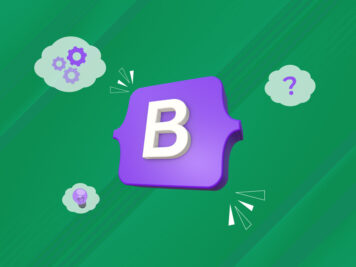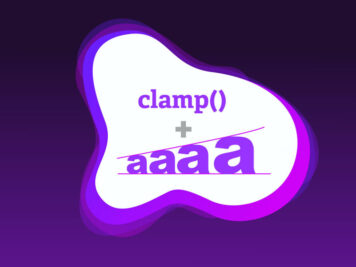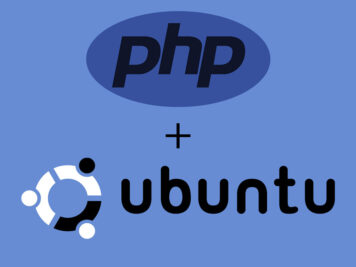In the rapidly evolving landscape of decentralized applications (dApps) and blockchain technology, the integration of Web3 wallets plays a pivotal role in enhancing user experiences and expanding the possibilities of decentralized interactions. Developers today are presented with a diverse array of Web3 wallet solutions, each equipped with unique features and functionalities to cater to the dynamic needs of the blockchain ecosystem.
This blog post serves as a comprehensive exploration of a few standout Web3 wallet solutions: Web3Modal, Web3-Onboard, Web3Auth, and Capsule. We will delve into the distinctive features and advantages offered by each solution, providing developers with insights into choosing the right fit for their projects. Whether you’re focused on simplicity, rapid integration, seamless onboarding, or advanced security features, this blog aims to guide you through the rich landscape of Web3 wallet solutions.
Web3Modal
The Web3Modal SDK allows you to connect your Web3 dapp with wallets easily. It provides a simple and intuitive interface for dapps to request actions such as signing transactions and interacting with smart contracts on the blockchain.
Key Features:
- Framework Support: Web3Modal shines in its versatility, providing easy integration with various frameworks such as React, Vue, vanilla JavaScript, and more. This flexibility allows developers to seamlessly incorporate it into their preferred development environments.
- Customizable UI: Developers can tailor the user interface to match the aesthetics of their applications. Web3Modal offers options for light and dark modes, accent colors, and even the ability to infuse it with the app’s branding.
- EIP-6963 Support: Web3Modal supports the EIP-6963 standard for browser extension wallets, ensuring compatibility with a wide range of wallet solutions.
- Multi-Chain Ready: With Web3Modal, developers can effortlessly set up support for any Ethereum Virtual Machine (EVM) chain, providing flexibility in blockchain network integration.
- Wallet Compatibility: Web3Modal supports connections with a vast array of wallets, including popular ones like MetaMask, Rainbow, Coinbase, and many more.
- Transaction History: Users can conveniently view all transactions from the account view, enhancing transparency and user engagement.
Explore the Web3Modal and refer to the developer documentation for detailed insights into the integration process and customization options.
Web3 Onboard
Web3-Onboard is the quickest and easiest way to add multi-wallet and multi-chain support to Next on our journey is Web3-Onboard, offering the quickest and easiest way to add multi-wallet and multi-chain support to your projects. With modules for over 35 hardware and software wallets, minimal dependencies, and a themable interface, Web3-Onboard streamlines wallet integration while providing a comprehensive account management center.
Key Features:
- Minimal Dependencies: Web3-Onboard adopts a modular approach, including separate packages for wallet dependencies. Developers can selectively include only the necessary components in their applications, reducing unnecessary bloat.
- Multi-Wallet and Multi-Chain Support: Users can connect multiple wallets and manage multiple accounts within each wallet simultaneously. Web3-Onboard simplifies the process of switching between chains and networks, supporting all EVM networks.
- Account Center: The interface provides a centralized location for managing wallet connections and networks, offering a minimal version suitable for mobile applications.
- Themable: Developers have the power to customize the look and feel of Web3-Onboard to seamlessly integrate with existing designs or choose from pre-made themes.
- Unified Provider Interface: All wallet modules expose a provider compliant with EIP standards (EIP-1193, EIP-1102, EIP-3085, and EIP-3326), ensuring consistent functionality across different wallet types.
- Dynamic Imports: Web3-Onboard optimizes bandwidth usage by dynamically importing wallet dependencies only when a user selects a particular wallet, improving performance.
- Framework Agnostic: Web3-Onboard is designed to work with any framework, and it includes helper packages for popular frameworks like Vue and React.
- Real-Time Transaction Notifications: Users receive real-time notifications for all transaction states related to their connected wallet addresses, including speedups and cancels for hardware wallet connections.
Dive into the Web3-Onboard and explore the developer documentation for a detailed understanding of its features and integration guidelines.
Web3Auth
Web3Auth introduces a pluggable wallet infrastructure designed to streamline onboarding for both mainstream and crypto-native users. With support for OAuth-based login systems, customizable login options, and comprehensive Web3 wallet/key management, Web3Auth ensures a seamless user experience while maintaining non-custodial principles.
Key Features:
- Versatile Sign-in Options & Passwordless Registration: Users have the flexibility to sign up through various OAuth providers such as Google, Twitter, GitHub, etc. Additionally, users can opt for passwordless registration where a sign-in link is sent directly to their email.
- Customizable Login Systems: Developers enjoy the freedom to create their own login systems, integrating traditional methods with Web3Auth’s wallet management infrastructure. This flexibility allows for integration into existing user bases or authentication processes without migration hassles.
- Comprehensive Web3 Wallet/Key Management: Web3Auth’s wallet management infrastructure, based on Multi-Party Computation (MPC), ensures secure and non-custodial wallet management. Users retain control of their cryptographic key pair, and the login service only accesses a single share, preventing the provider from independently retrieving the user’s wallet.
- Effortless Wallet Recovery: Multiple factor authentication methods, such as social accounts, email, SMS, or trusted devices, facilitate easy key recovery. Users can restore their wallets without the fear of data loss.
- Plug and Play SDKs: Web3Auth’s Plug and Play SDKs streamline integration, offering a Modal SDK for a customizable modal UI and a No Modal SDK for seamless implementation behind custom UIs. Mobile App Development SDKs (Android, iOS, React Native, Flutter) and Gaming Development SDKs (Unity, Unreal Engine) provide efficient, platform-specific options for quick integration, ensuring a smooth onboarding experience for users.
Explore the Web3Auth demo app and refer to the developer documentation for comprehensive insights into its features and integration processes.
Capsule
Capsule offers a signing solution focused on secure cross-application embedded wallets. Leveraging secure hardware enclaves and programmable MPC, Capsule ensures superior security while providing features like granular permissions, programmable signing, and wallet portability, all while maintaining a non-custodial design and developer flexibility.
One key differentiator is that, unlike other solutions that serve as wallet infrastructures facilitating connections with various inbuilt or external wallets, Capsule itself functions as a distinct wallet for example MetaMask.
Key Features:
- Safe & Secure: Capsule prioritizes security by leveraging Multi-Party Computation (MPC) and Distributed Key Generation (DKG). These techniques ensure the highest levels of security and key recoverability without compromising user experience or the principles of self-custody.
- Wallet Portability: Capsule enables the creation of embedded wallets without fragmentation. With a Capsule wallet, users can single sign-on (SSO) across chains, devices, and apps, even if an application has not integrated Capsule yet. This ensures a seamless and cohesive experience for users.
- Programmable Signing: Capsule introduces programmable transactions, allowing developers to control how and when transactions are executed. This includes features such as spending limits, progressive two-factor authentication (2FA), and automations, all without increasing the friction associated with transaction signing.
- Customizations & Add-Ons: Capsule provides developers with the flexibility to enhance the end-to-end experience. Native on and off ramps, analytics, and more can be integrated, either by building on Capsule’s modal components or by incorporating a custom UI to suit users’ needs and preferences.
- Delightful Developer Experience: Capsule’s mobile and web SDKs are compatible with popular standards like Ethers, Wagmi, Viem, and adhere to specifications such as EIP-1193 and ERC-4337. This compatibility ensures a quick and easy integration process for developers, enhancing the overall developer experience.
- Multi-Device Support: Capsule allows users to sign transactions from anywhere, whether they are using a mobile app, a Progressive Web App (PWA), or a messaging platform like Telegram. This multi-device support ensures flexibility and accessibility for users.
- Intelligent Multi-Chain SSO: Capsule abstracts the complexity of signing across different chains. Compatible with all ECDSA chains, Capsule enables users to single sign-on (SSO) seamlessly across different chains, offering a unified and intelligent experience.
Capsule is currently in its public beta version, with limited support for mobile wallets built with React Native and React-based web apps developed with JavaScript. The platform supports EVM and Cosmos chains, with one wallet per user per chain and limited multi-wallet feature support. Explore the Capsule demo app and refer to the developer documentation for further details on its features and integration processes.
Feature Comparison
Now that we’ve explored the distinctive features of each Web3 wallet solution — let’s take a closer look at how they compare in key aspects. The table below provides a side-by-side comparison, making it easier for developers to assess which solution aligns best with their project requirements.
| Feature | Web3Modal | Web3- Onboard | Web3Auth | Capsule |
| Customizable UI | Yes | Yes | Yes | Yes |
| Multi-Chain Support | Yes | Yes | Yes | Yes |
| Wallet Compatibility | 380+ wallets including MetaMask, Rainbow, Coinbase, and more | Over 35 hardware and software wallets | Torus EVM Wallet Torus Solana Wallet MetaMask Phantom Wallet WalletConnect V1 Coinbase Wallet Slope Wallet Solflare Wallet | Embedded wallet functionality |
| Sign-in Options | Sign in with 380+ external wallets | Sign in with over 35 hardware and software wallets | OAuth-based login for Google, Twitter, GitHub, etc + external wallet sign in | Email-based login with biometric authentication and 2FA |
| Web3 Wallet/Key Management | Key managed by external wallets | Key managed by external wallets | Multi-Party Computation (MPC) and Distributed Key Generation (DKG) | Multi-Party Computation (MPC) and Distributed Key Generation (DKG) |
| Wallet Recovery | Handled by external wallets | Handled by external wallets | Multiple-factor authentication methods | Multiple-factor authentication methods |
| Web Framework Support and Development SDKs | Framework- Agnostic, React Native, Flutter, Android, iOS | Framework- Agnostic | Framework- Agnostic, Mobile App Development SDKs (Android, iOS, React Native, Flutter), Gaming Development SDKs (Unity, Unreal Engine) | React, React Native |
| Transaction History | Yes | Real-time transaction notifications | – | – |
Conclusion
In the dynamic realm of decentralized applications (dApps) and blockchain technology, the integration of Web3 wallets stands as a crucial element in enhancing user experiences and broadening the horizons of decentralized interactions. As developers navigate through a diverse array of Web3 wallet solutions, the choices become paramount in aligning with the dynamic needs of the blockchain ecosystem.
In this exploration of Web3 wallet solutions—Web3Modal, Web3-Onboard, Web3Auth, and Capsule—we’ve highlighted their unique features and advantages for developers in the dynamic world of decentralized applications (dApps) and blockchain technology. Each solution caters to diverse project requirements, offering versatility, minimal dependencies, seamless onboarding, and advanced security features. Whether it’s Web3Modal’s multi-framework support, Web3-Onboard’s modular approach, Web3 Auth’s pluggable infrastructure, or Capsule’s secure embedded wallet, developers have a rich landscape to choose from based on their specific needs.
The future of Web3 wallets holds exciting possibilities as blockchain technology continues to evolve. Enhanced interoperability, broader blockchain network support, and further simplification of integration processes are potential areas of growth. Additionally, advancements in user experience, privacy features, and collaboration between different Web3 wallet solutions may pave the way for more seamless and secure decentralized interactions. As the blockchain landscape matures, developers can anticipate even more robust tools and frameworks, ensuring a user-centric and developer-friendly approach in the decentralized ecosystem.










